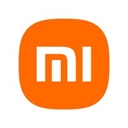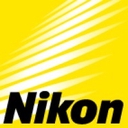Electronics Store Privacy Policies
Companies in the Electronics Store category Browse and analyze privacy policies from 62 companies in the Electronics Store category.

Dolby Laboratories, Inc.
dolby.com
Dolby's policies are comprehensive but lack transparency in security and retention, with one-sided legal terms and complex user rights processes.

GameStop Corp.
gamestop.com
GameStop's privacy policy and terms of service are comprehensive but lack transparency in key areas, affecting user control and clarity.

Nokia
nokia.com
Nokia's privacy policy is comprehensive but has areas for improvement in clarity, specificity, and user rights.

Whirlpool Corporation
whirlpool.com
Whirlpool's policies are detailed but lack clarity and have broad legal terms, affecting user protections.

Xiaomi Technology
mi.com
Xiaomi's privacy policy is comprehensive but has significant issues with data practices and user control.

Best Buy
bestbuy.com
Best Buy's policy provides good data privacy measures but lacks clarity and has concerning legal terms.

Control4
control4.com
Control4's policies show strengths in data security and user rights but lack clarity in retention practices and dispute resolution, scoring 72/100.

Makezine
makezine.com
Make Community's policies are comprehensive but lack clarity and detail in security and data retention, scoring 72/100.

Amazon
amazon.com
Amazon's Privacy Notice and Conditions of Use provide some transparency on data collection and usage practices, but lack clarity on sharing practices and retention periods.

Taobao Marketplace
taobao.com
Tmall's policy scores 68/100, with strengths in user rights and legal protection but weaknesses in data practices and clarity.

CNET
cnet.com
Ziff Davis demonstrates some strengths in data privacy and user rights but falls short in transparency, user control, and legal fairness, warranting a score of 65 out of 100.

Nikon Corporation
nikon.com
Nikon's privacy policy is clear but lacks detailed security measures and user rights processes, scoring 65 out of 100.